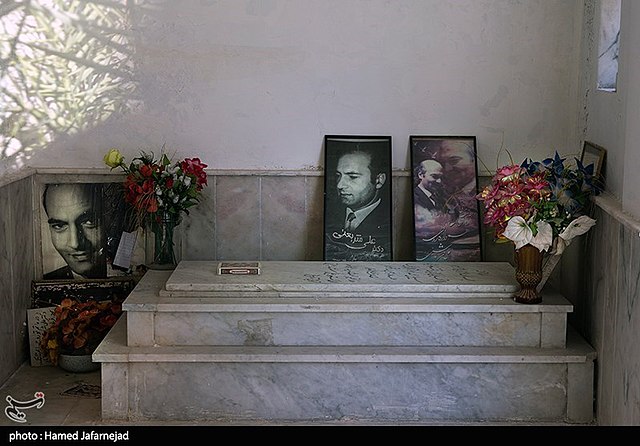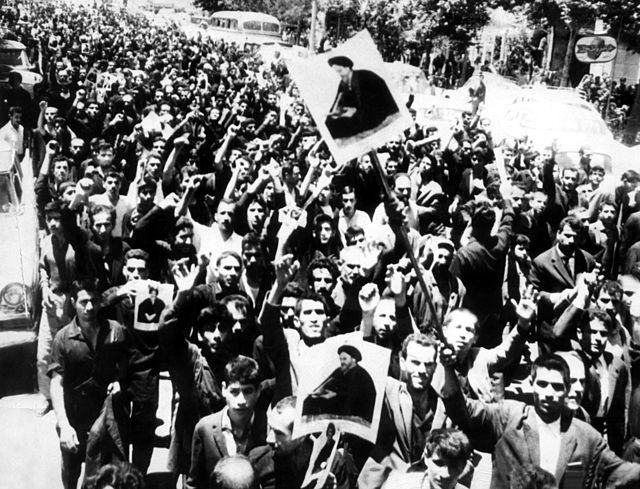Ali Shariati Mazinani was an Iranian revolutionary and sociologist who focused on the sociology of religion. He is held as one of the most influential Iranian intellectuals of the 20th century, and has been called the "ideologue of the Islamic Revolution", although his ideas did not end up forming the basis of the Islamic Republic.
Shariati in 1972
The tomb of Shariat, fot. Hamed Jafarnejad.
The mausoleum of Shariat in 2001, fot. Ivonna Nowicka.
Shariati and his family, one day after his release from prison.
The Iranian Revolution, also known as the Islamic Revolution, was a series of events that culminated in the overthrow of the Pahlavi dynasty in 1979. The revolution also led to the replacement of the Imperial State of Iran by the present-day Islamic Republic of Iran, as the monarchical government of Mohammad Reza Pahlavi was superseded by the theocratic government of Ayatollah Ruhollah Khomeini, a religious cleric who had headed one of the rebel factions. The ousting of Pahlavi, the last Shah of Iran, formally marked the end of Iran's historical monarchy.
Mass demonstrations of people protesting against the Shah and the Pahlavi government on the day of Hosseini's Ashura on 11 December 1978 at College Bridge (now Hafez Bridge), Tehran
Shah Mohammad Reza Pahlavi
Ayatollah Sayyid Ruhollah Musavi Khomeini
Residents of Tehran participating in the demonstrations of 5 June 1963 with pictures of Ruhollah Khomeini in their hands








